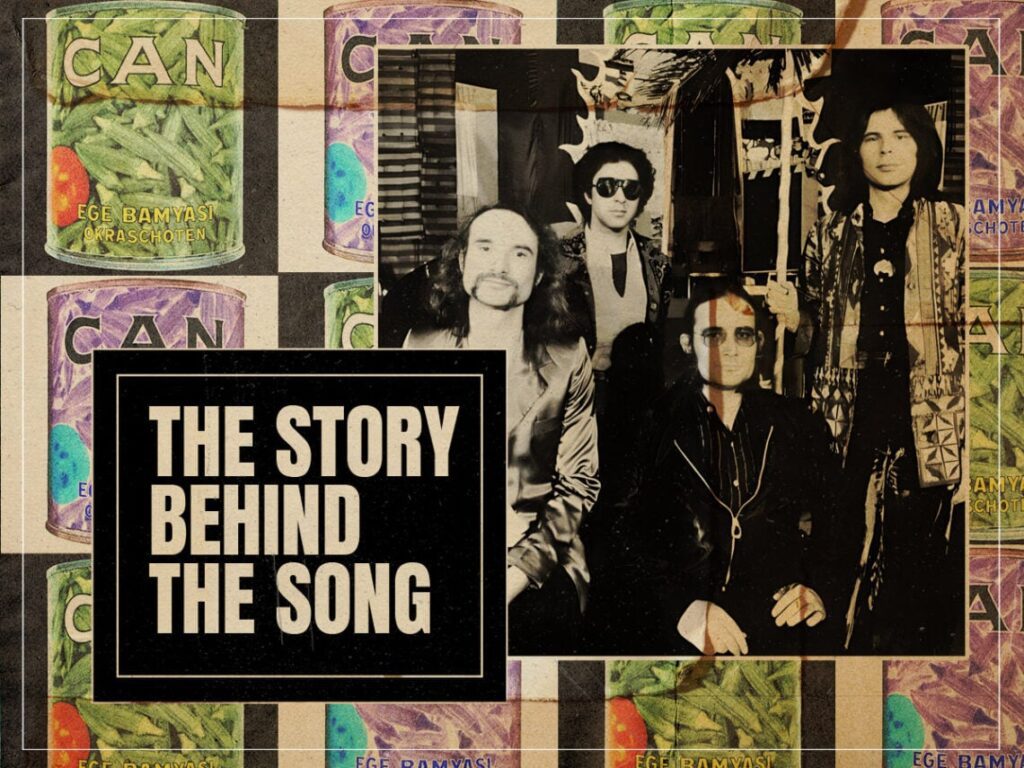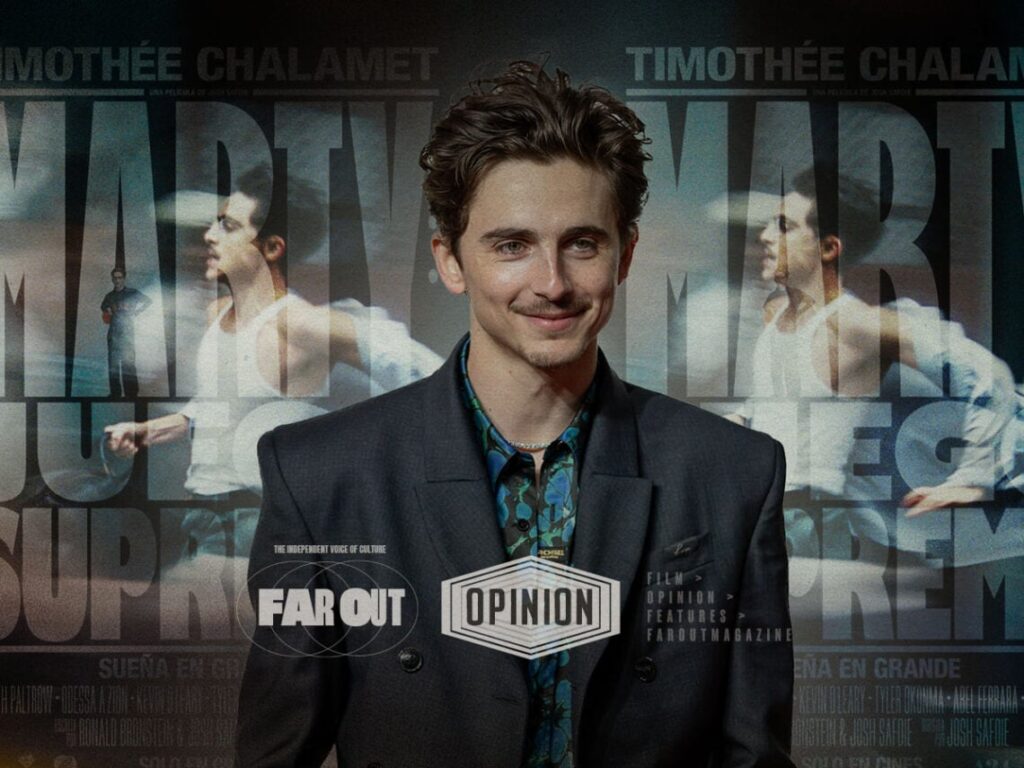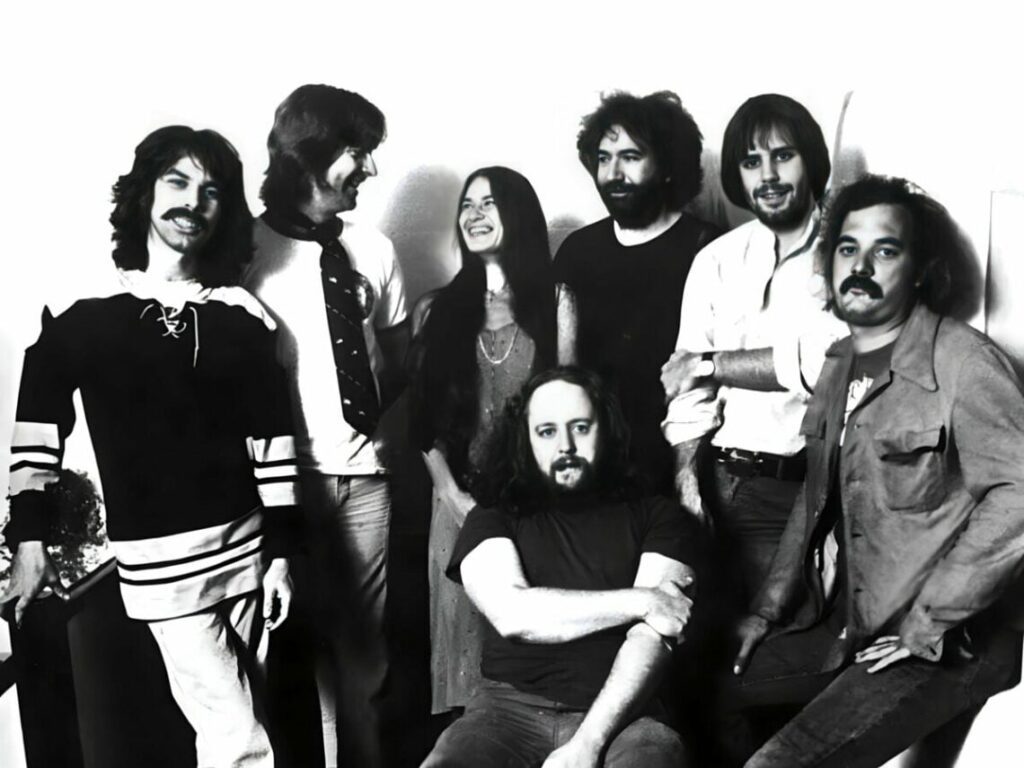The Story Behind The Song: Can and the krautrock classic, ‘Vitamin C’
 Posted On
Posted On
(Credits: Far Out / CAN / Spoon Records)
Krautrock emerged in West Germany during the late 1960s in response to the psychedelic rock movement. From rock ‘n’ roll’s origins in 1950s America, it spread East, gaining a nuance of colour at each stop. By the time it reached West Germany, it was barely recognisable, warped out of recognition by a convergence of external styles like jazz, funk, classical and even cutting-edge electronic music. Among the movement’s key players was Can.
Although some people talk about krautrock as if it is a genre in itself, the only thing its leading proponents had in common was an experimental edge. While Kraftwerk toyed with synthesisers and vocoders and Tangerine Dream pioneered experimental ambient music, Can brought funky grooves to propulsive psych-rock jams. Following a formative spell fronted by Malcolm Mooney in the late 1960s, the Cologne-born band enlisted its most famous vocalist, Damo Suzuki.
Suzuki’s influence on the band was profound. His lyrical vignettes and unique delivery style, which ranged from mumbling cadence to hair-raising shrieks, adorned the band’s finest trio of albums from Tago Mago to Future Days. Often with a disregard for radio-friendly track durations, these releases also benefitted hugely from the virtuosic percussion of Jaki Liebezeit. He received particular praise for his contributions to the 18.5-minute Tago Mago classic ‘Halleluhwah’.
In between Tago Mago and the comparatively sedate Future Days was Ege Bamyasi, Can’s most accessible and widely-appreciated album. The record’s iconic sleeve, which features a colourful can of ege bamyasi (Turkish for Aegean okra), has since become the bad’s most recognisable symbol. Okra is incidentally rich in vitamin C, the album’s most enduring ingredient.
As one of Can’s more conventional compositions, the second single, ‘Vitamin C’, hits the airtime sweet spot at three minutes and 32 seconds in length. Like the album’s other highlights, ‘I’m So Green’ and ‘One More Night’, the song leads with percussive urgency, which reflects the true urgency with which the band recorded the record. According to guitarist Michael Karoli, Suzuki and keyboardist Irmin Schmidt wasted much of their allotted recording time playing heated games of chess.
Despite stringent time pressures, Can delivered a true masterpiece and ‘Vitamin C’ was the cherry on top. While Suzuki’s famous chorus refrain, “Hey you! / You’re losing, you’re losing, you’re losing, you’re losing your vitamin C,” is easy enough to digest, the mumbled verses are a little harder to decipher.
Though you may not have heard it as such, the first verse introduces a female character who is ostensibly going off the rails: “Her daddy got a big aeroplane / Her mommy holds all the family cash / A beautiful rose is standing at the corner / She is living in and out of tune”. Later in the song, Suzuki further establishes this idea of social descent with the couplet, “A monster press machine is on her body / While she is stepping on the quicksand”.
As David Bowie had a year prior on Hunky Dory, Suzuki used quicksand as a metaphor for the snares of modern life. Though he never explained definitively, the song is about a young woman who has grown up in an affluent and sheltered environment. With newfound independence, she is clearly struggling, living “in and out of tune” and losing her vitamin C. The latter could be a hint that she’s not feeding herself properly (not enough ege bamtyasi). Alternatively, Suzuki could have used the expression to outline the woman’s detached state as “lost at sea” like the scurvy-ridden sailors of yore.
Suzuki left his oblique lyrics open to the listener’s interpretation and maybe never had a particularly clear image in his head. Either way, the song, along with the other bulletproof material in Can’s early 1970s catalogue, continues to capture the imagination of artists around the world today. Famously, Mark E. Smith of The Fall released the song ‘I Am Damo Suzuki’ as a tribute to ‘Vitamin C’ and its iconic singer in 1985. “What have you got in that paper bag?” he sang. “Is it a dose of Vitamin C?”
[embedded content]
Related Topics


